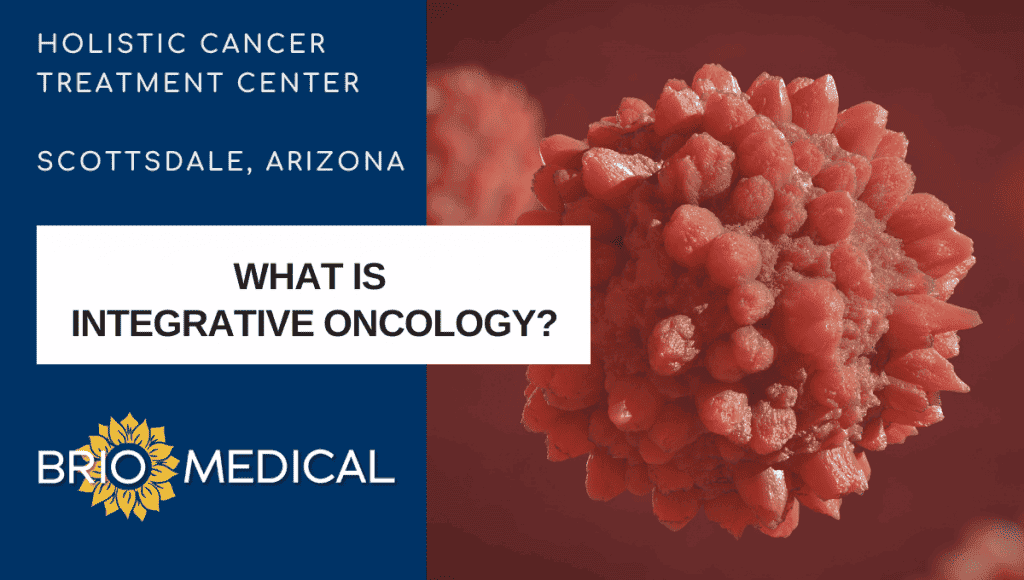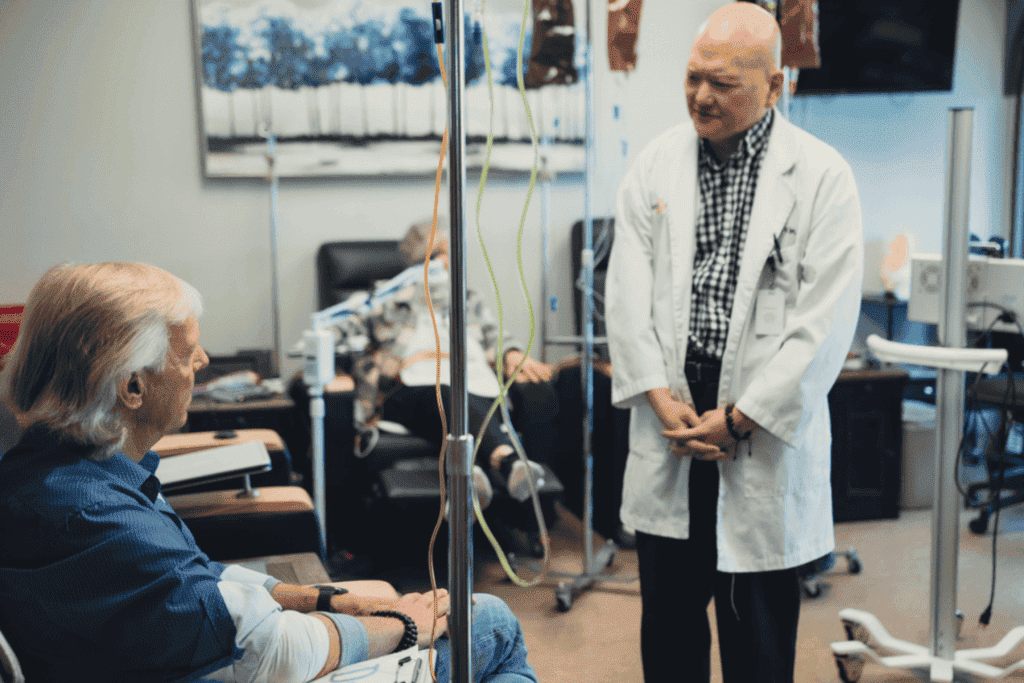The following guide covers lab tests cancer patients should know about.
Doctors can use a variety of lab tests to either diagnose cancer or help in treating the disease. Patients who have received a cancer diagnosis or those whose doctor has referred them to a general cancer clinic should make themselves aware of the testing options available to them. Here are 10 cancer lab tests every patient should know about.
Lab Tests Cancer Patients Should Know
1. Tumor Marker Blood Test
After you receive a diagnosis of cancer and have started a course of treatment, tumor marker tests can tell your doctor how well the cancer is working. Tumor markers are specific antigens that certain cancers make. High levels indicate that you might need to pursue another avenue of treatment or combine your current treatment with another non-toxic therapy to be more effective.
As a stand-alone test to diagnose cancer, tumor marker tests aren’t as reliable as other testing options. Some healthy cells, as the Mayo Clinic points out, manufacture these antigens. Additionally, some conditions other than cancer can produce high levels of tumor markers.
Tumor marker testing can test for a variety of antigens, including:
- Prostate-specific antigens (PSA) – For prostate cancer
- CA 125, HE4, and ROMA – For ovarian cancer
- Carcinoembryonic antigen (CEA) and epidermal growth factor receptor (EGFR) – For colorectal cancer
- Alpha-fetoprotein (AFP) – For testicular cancer
- Thyroglobulin – For thyroid cancer
- NMP-22 – For bladder cancer
- SMR – For mesothelioma
- CA 15-3, CA 27-29, and HER2 – For breast cancer
- CA 19-9 For pancreatic cancer
2. Multi-Cancer Early Detection Test (MCED)
A groundbreaking 2021 cancer detection study conducted by the Cleveland Clinic’s Eric Klein demonstrated the accuracy of a methylation-based blood test that combined cell-free DNA (cfDNA) sequencing with machine learning to detect the unique cancer signals of a broad range of cancer, accurately predicting cancer signal origin (CSO). Currently, the test is available in every state in the U.S. except for New York.
Doctors recommend this leading-edge cancer test for patients 50 and over since many cancers form in people in that age range. Usually, clinics use this test in conjunction with single-cancer screening tests.
3. Biomarker Tests for Blood Cancers and Hard-to-Reach Tumors
Biomarker tests identify proteins, genes, and other substances that create a unique profile for various cancers. These substances can help doctors identify integrative cancer treatments that work best for each type of cancer.
Doctors usually recommend this blood test for people with blood cancers. Additionally, patients with solid tumors often opt for this cancer lab test instead of invasive surgery.
4. Cancer Biomarker Biopsies
Biopsies, procedures in which doctors take a sample of tissue from tumors, also can identify biomarkers. If patients choose surgery, their doctors can remove a tiny sample during the operation.
If the patient doesn’t want surgery, doctors can usually do a needle biopsy. In a needle biopsy, the doctor inserts a needle into the tumor and extracts some of the tissue. After the doctor removes the tissue, they send the samples to a lab, where lab technicians will examine the tissues for specific biomarkers and send the report to the treating physician.
5. Fast CT Scan for Early Detection in Lung Cancer
Many lung cancers are highly treatable when healthcare providers find them early. However, as a Danish lung cancer study indicated, most general practitioners use chest X-rays as their initial diagnostic tool.
The researchers compared the outcomes of patients whose doctors opted first for X-rays to those of patients whose doctors chose CT scan for the patients' initial diagnostic examinations. Since low-dose computer tomography (LDCT) “has a high sensitivity for lung cancer,” the researchers thought, using it when patients first presented with lung cancer symptoms would be helpful.
As the researchers surmised, using this cancer lab test did indeed identify tumors while they were still small. Early detection gives patients the opportunity to choose a natural treatment option that could stop lung cancer in its tracks before it progresses to an advanced stage.
6. Cancer Staging Tests
After patients receive a cancer diagnosis, their healthcare provider will likely schedule staging tests to learn what stage the cancer has progressed to. Knowing what stage the cancer is in gives doctors the information they need to find alternative cancer treatment options or complementary therapies that give the patient the best chance at living a longer, more fulfilling life.
Staging tests can include bone scans, X-rays, or other imaging tests to see if the patient’s cancer has spread to nearby tissue or into other parts of the body. Doctors classify cancers into the following stages:
- Stage I: The tumor is confined to a small area and has not spread.
- Stage II: The cancer has grown into other parts of the same organ, but it has not spread into lymph nodes or other types of nearby tissues.
- Stage III: The cancer has grown noticeably larger and possibly has spread into the body’s lymph nodes or different types of tissues.
- Stage IV: The tumor has spread to other areas of the body. These new cancers are called metastases, hence the term “metastatic cancer.”
7. Comprehensive Metabolic Panel (CMP)
Patients switching from traditional cancer therapies to a holistic medicine approach or who opt for natural treatments to complement chemotherapy or other harsh interventions often have suffered changes in their kidney or liver function. A comprehensive metabolic panel measures several blood chemistry factors that indicate how well these organs are functioning.
A comprehensive metabolic panel measures the following values to assess kidney function:
- Blood urea nitrogen (BUN)
- Creatinine
Additionally, a CMP also assesses liver function by measuring the following values:
- Total protein
- Alanine aminotransferase (ALT)
- Albumin
- Aspartate aminotransferase (AST)
- Bilirubin
- Alkaline phosphatases
As patients progress through their natural cancer treatments, their doctors might measure these values several times to assess the effectiveness of their treatment and to see if a natural approach can undo the damage that more radical therapies do to the body.
8. Genetic Testing for Hereditary Cancer
Cancer patients, especially those whose cancers are in later stages, often want to save their families from the stress and discomfort that comes with having cancer. If their doctor suspects that a patient’s cancer might be hereditary, they might suggest multi-gene panel testing to confirm or rule out a genetic cause.
If the patient’s cancer is likely hereditary, they can discuss their results with close relatives so that they can pursue early detection and treatment options, if needed. Preventative strategies, as well as early detection, can save other family members from the heartache of having cancer.
9. Blood Protein Test
Certain cancers, like myeloma, lymphoma, or some leukemias, can cause your immune system to release special proteins, called immunoglobulins in response to the disease. A blood protein test, like most blood tests, starts with a blood draw.
Then, the testing laboratory uses electrophoresis, a type of chromatography, to separate the immunoglobulins from other elements by their electrical charge and size. If the test reveals the presence of immunoglobulins specific to one of those cancers, it can mark a definitive step toward diagnosis and treatment.
10. Circulating Tumor Cell Test
A circulating tumor cell test checks a patient’s blood sample for cells that have broken off from a tumor and have gotten into the bloodstream, one of the first steps in metastasis (cancer spreading into other parts of the body). Additionally, this test can help doctors monitor various types of cancers, such as colorectal, prostate, and breast tumors. for any changes.
Can Brio-Medical Interpret My Cancer Lab Test Results?
If you’re looking for alternative cancer treatment in the holistic medicine community, the Brio-Medical team can help, whether it’s ordering one or more of these cancer lab tests or simply interpreting the results of tests you’ve received elsewhere. More importantly, our team can provide you with a course of treatment that respects your commitment to natural health grounded in solid science.
To learn more about what we can offer in cancer diagnosis and treatment, make an appointment for a free consultation with our caring team. Schedule your consultation today!
External References:
“Cancer blood tests: Lab tests used in cancer diagnosis.” Mayo Clinic, https://www.mayoclinic.org/diseases-conditions/cancer/in-depth/cancer-diagnosis/art-20046459.
Accessed August 26, 2022.
“Clinical validation of a targeted methylation-based multi-cancer early detection test using an independent validation set”, by Eric Klein et al. Annals of Oncology. doi: https://doi.org/10.1016/j.annonc.2021.05.806
“Biomarker Testing for Cancer Treatment.” National Cancer Institute, https://www.cancer.gov/about-cancer/treatment/types/biomarker-testing-cancer-treatment. Accessed August 26, 2022.
Guldbrandt, Louise Mahncke. “The effect of direct referral for fast CT scan in early lung cancer detection in general practice. A clinical, cluster-randomized trial.” Danish medical journal vol. 62,3 (2015): B5027.
“Cancer: Diagnosis & Treatment.” Mayo Clinic, https://www.mayoclinic.org/diseases-conditions/cancer/diagnosis-treatment/drc-20370594. Accessed August 27, 2022
“How Cancer Is Diagnosed.” National Cancer Institute, https://www.cancer.gov/about-cancer/diagnosis-staging/diagnosis. Accessed August 27, 2022.
“Cancer.” https://my.clevelandclinic.org/health/diseases/12194-cancer. Accessed August 27, 2022.
DeMarco, Cynthia. “What do your lab test results mean?” MD Anderson Cancer Center, 28 February 2022, https://www.mdanderson.org/cancerwise/understanding-your-lab-test-results-what-do-they-mean.h00-159537378.html.
Pollard, Samantha et al. “Genetic testing for hereditary cancer syndromes: patient recommendations for improved risk communication.” Health expectations : an international journal of public participation in health care and health policy vol. 23,4 (2020): 884-892. doi:10.1111/hex.13062
“Blood Tests for Cancer.” Cleveland Clinic https://my.clevelandclinic.org/health/diagnostics/22338-blood-tests-for-cancer. Accessed August 27, 2022.
Brio-Medical, Scottsdale AZ, is a natural, holistic, and integrative expert in the cancer field. He is the medical director at Brio Medical, a holistic, integrative cancer healing center in Scottsdale, Arizona. Brio-Medical received his Bachelor of Arts from Louisiana Tech University and his Doctor of Medicine from LSU Health Sciences Center. He is Board Certified in Obstetrics and Gynecology and served as the Chief Resident in Obstetrics and Gynecology at the University of Tennessee. Brio-Medical is a Fellow in Functional and Regenerative Medicine, is a medical Advisor for NEO7 Bioscience and has been named as the President of the North American Society of Laser Therapy Applications (NASLTA).







